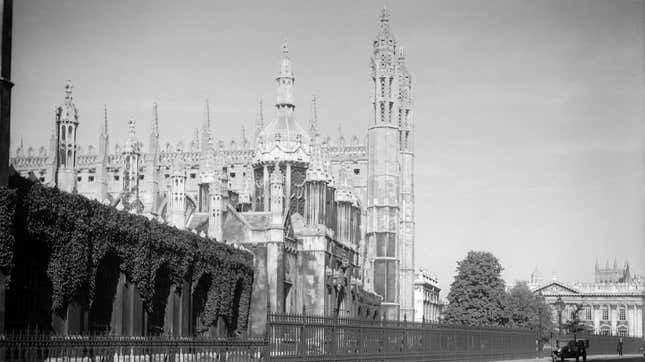Cambridge Is the Latest University Investigating Its Own Historic Ties to Slavery
In Depth

Cambridge University is embarking on a two-year investigation into the extent to which it benefitted from the slave trade over the centuries. The question is: What are they going to do when they inevitably discover their institutional ancestors were up to their necks in it?
The Times of London reported on the project:
Cambridge’s inquiry, which will have two full-time members of staff, is to examine financial bequests and other gifts to the university’s departments, libraries and museums with links to the Atlantic slave trade and other forms of coerced labour during the colonial era.
The study will also look at whether Cambridge academics may, through their work, have “reinforced and validated race-based thinking” between the 18th and early 20th centuries.
The investigation will focus on the central university itself; Cambridge is a sprawling institution incorporating several colleges which are technically independent and therefore won’t be included. But the report will ultimately be “made available as a model to colleges and other university institutions that may subsequently wish to conduct their own research.”
It sounds like they are proceeding under the assumption they will find plenty. Martin Millett, chairman of the advisory committee for the project, told Reuters:
“It is reasonable to assume that, like many large British institutions during the colonial era, the University will have benefited directly or indirectly from, and contributed to, the practices of the time,” said Millett, a professor of archaeology who specializes in Roman Britain.
“The benefits may have been financial or through other gifts. But the panel is just as interested in the way scholars at the University helped shape public and political opinion, supporting, reinforcing and sometimes contesting racial attitudes which are repugnant in the 21st Century.”
A number of universities have faced pressure in recent years to face the uglier aspects of their past. The University of Oxford, for instance, was pressured into removing the Cecil Rhodes statue in front of Oriel College. In 2018, the city of Charleston issued an official apology for its prominent role in the American slave trade. And as the Times pointed out, last year Glasgow University did a similar project and announced its plans for a “reparative justice” initiative, including the creation of a center for the study of slavery and a memorial.
Cambridge better be making plans for some concrete steps to take in the wake of whatever they find, because the odds are good it won’t be pretty. It’s hard to imagine any scenario where large sums of money from the 18th and 19th centuries in the Atlantic world that didn’t somehow touch slavery.